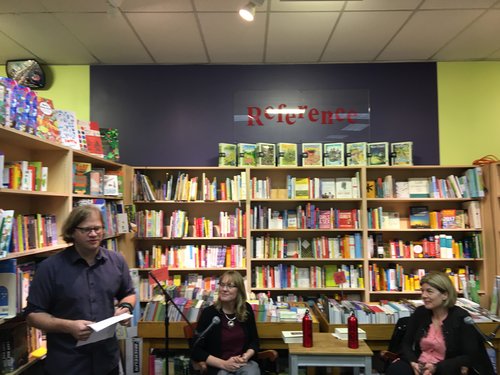Read Before You Go - Wolf Hunt
It has been scientifically proven that anticipating a vacation elicits happiness. The reason, as stated by James Hamblin in his article on the subject, is that “Experiential purchases like trips, concerts, movies, tend to trump material purchases because the utility of buying anything really starts accruing before you buy it.”
Without digging too deep into the economic mechanisms of this phenomenon, do you know what’s one surefire way to jumpstart that rich anticipation? Reading a book that is connected to your destination. And for anyone who wants to acquire a deep sense of Bulgaria and its history before they go, there is a great new translation into English of a powerful and gripping novel about communist Bulgaria.
Wolf Hunt (Хайка за вълци) by Ivaylo Petrov is a deeply influential saga that covers a hard and controversial part of Bulgarian history - the period after World War II through the mid-1960s. Its depiction of the brutal nationalization of all private property under Communist rule is rendered more powerful by the impartiality of the narrative. Despite the barely disguised criticism of the communist regime, the book received the award of the Bulgarian Writers Union, one of the highest literary awards at the time.
Last week, I attended an event at Porter Square Books in Cambridge, MA, where the book’s translator, Angela Rodel, discussed Wolf Hunt with acclaimed author Claire Messud. Angela Rodel is a gifted transformer of words who has been living in Bulgaria for a couple of years now. She is the Executive Director of Fulbright Bulgaria and a two-time Fulbright scholar herself - over the years, she has studied Bulgarian language and music in Sofia and Plovdiv.
Hearing Angela speak about the challenges of translating Wolf Hunt was equal parts fascinating and validating. She talked about the difficulty of translating Bulgarian humor - something that any bilingual compatriot of mine has certainly experienced more or less painfully. Angela’s deep insights into the genre of Bulgarian socialist realism and the social climate in the country during the 1980s were very evident in the ways she described the story of how the book saw the light of day despite its unflattering portrayal of communist Bulgaria.
The reading had a surprisingly touching ending when it culminated in a performance of several Bulgarian folk songs by current and former members of the Yale Slavic Chorus - Yale University’s oldest all-women’s vocal ensemble - and a few other gifted performers of Bulgarian folk music.
In the United States, Angela’s translation of Wolf Hunt is published by Archipelago Books. If you would like to receive more recommendations of books in English that would enrich your knowledge of Bulgaria and its culture and history, drop me a line at petia.whitmore@gmail and I will gladly send you a personally curated list.



